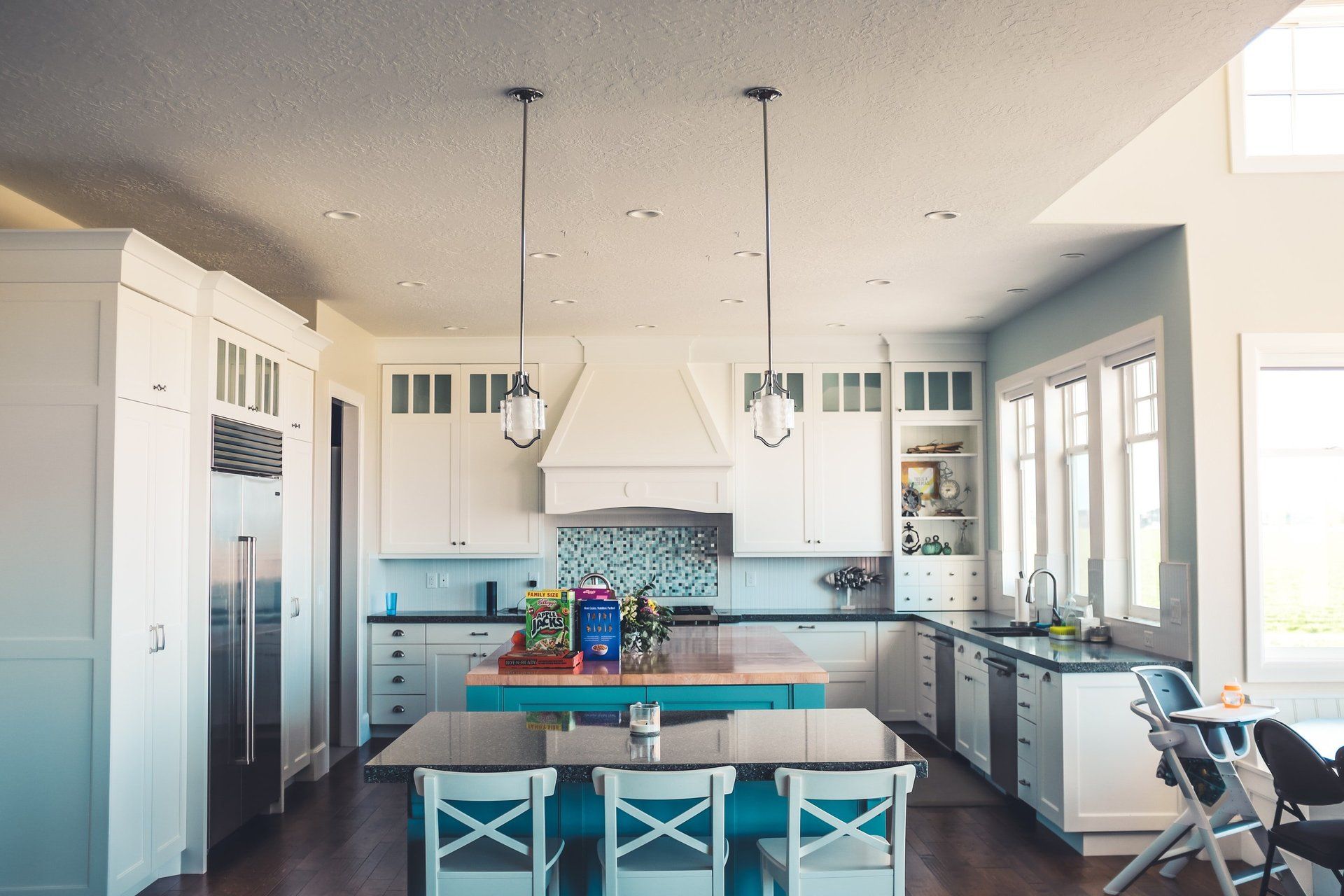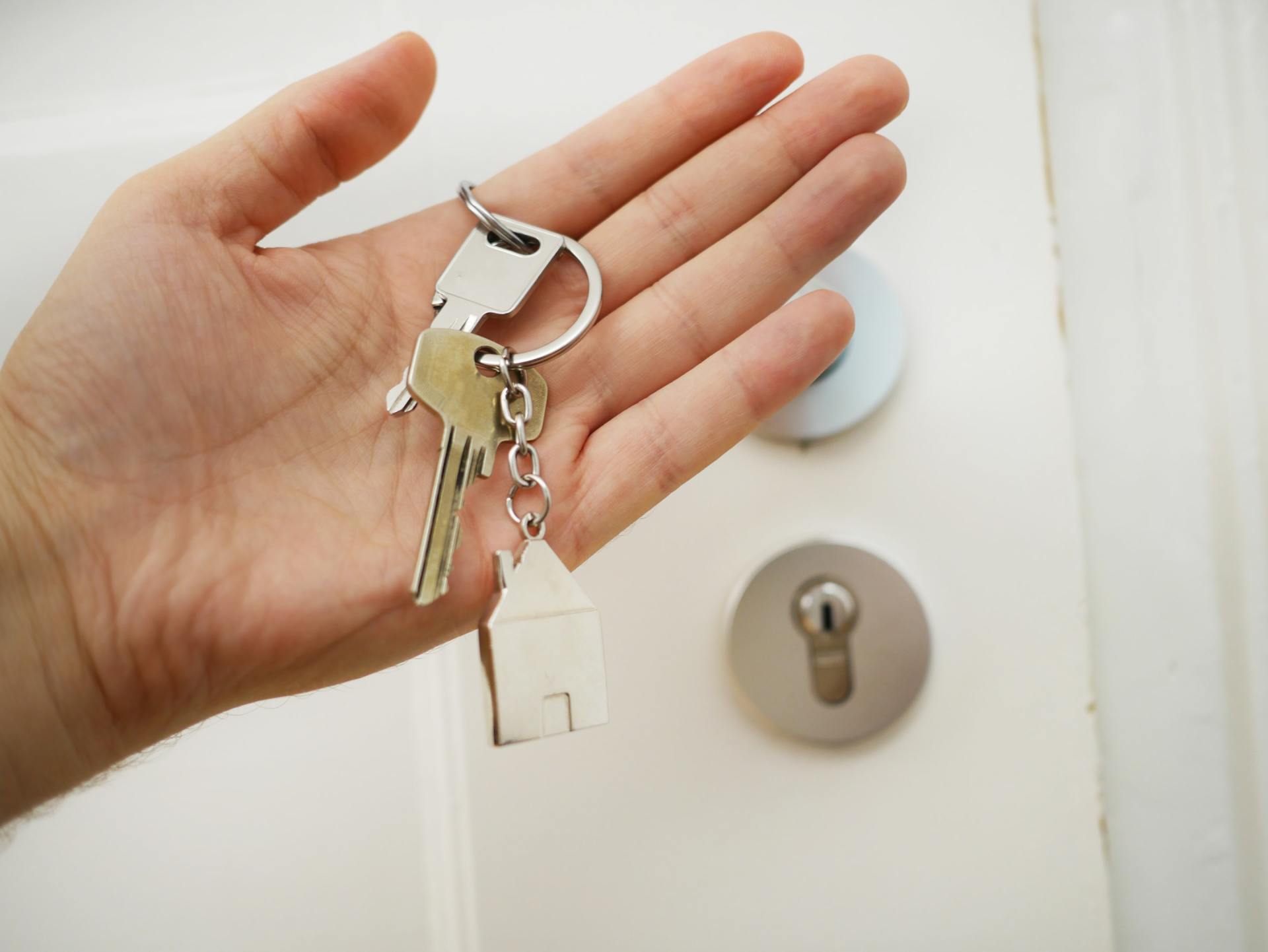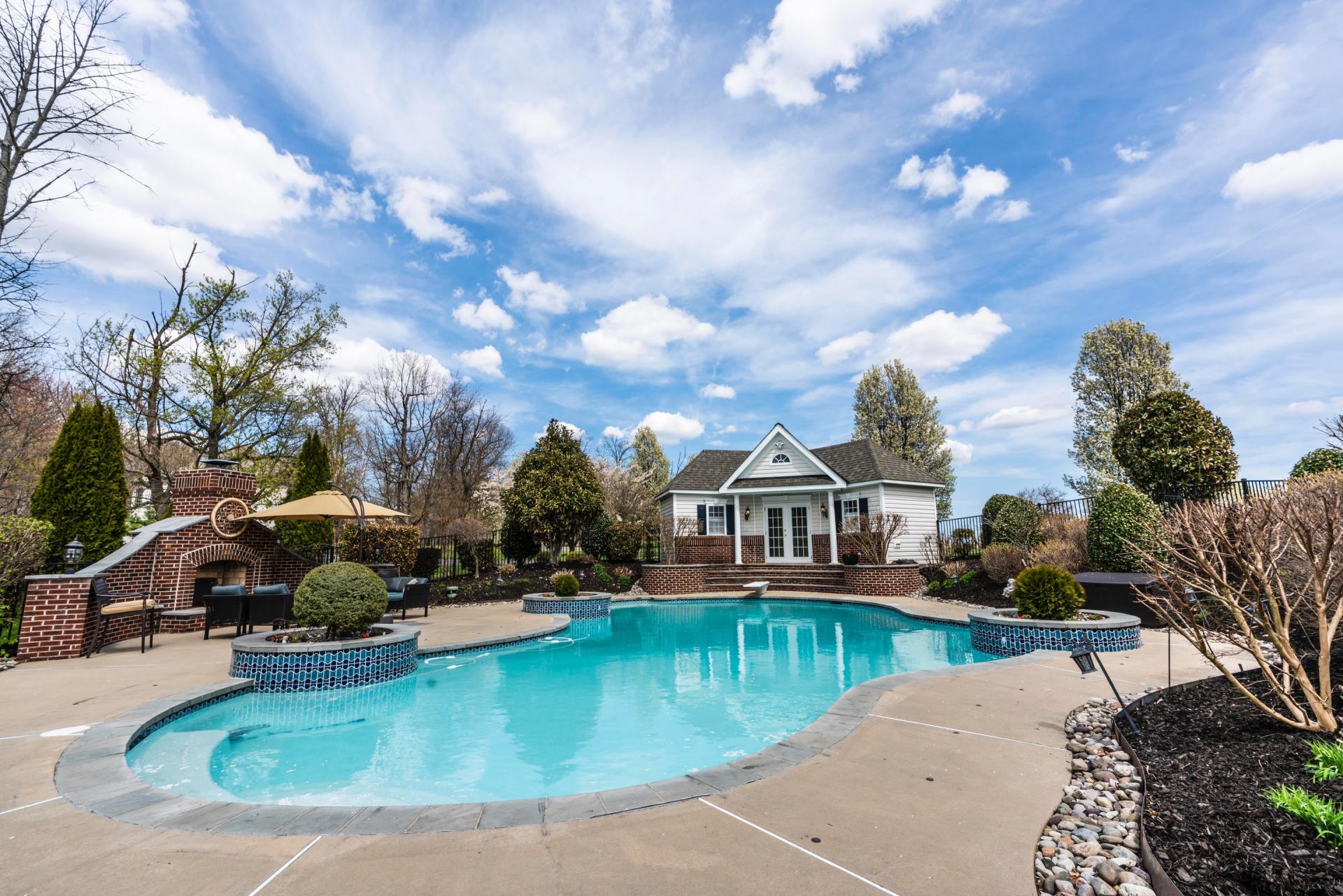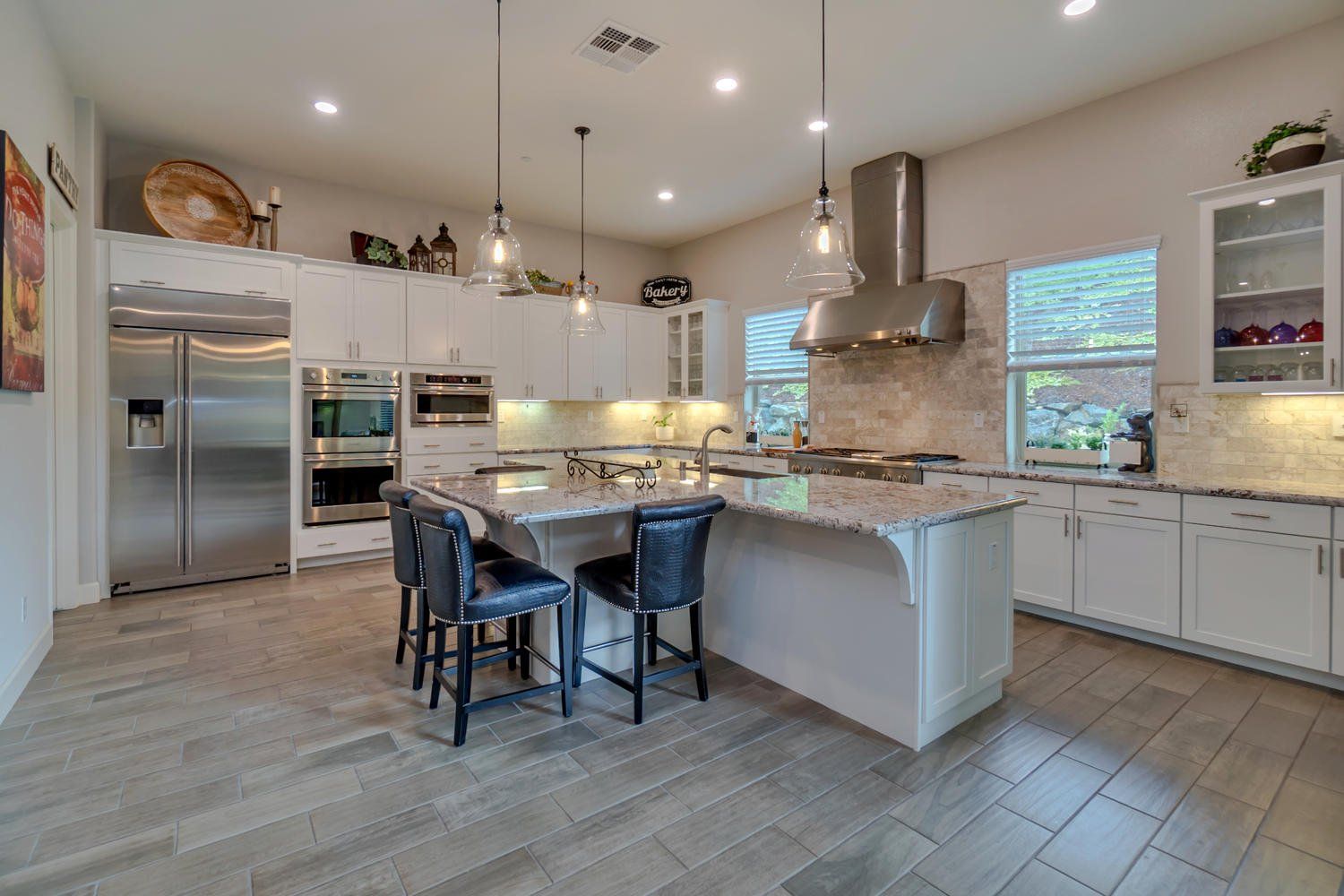First Time Home Buying Myths
chris.ha • February 5, 2020
Buying your first home is a major life achievement. It’s one of the most important financial decisions you’ll make. While the moment is certainly worth celebrating, it can also be a bit nerve racking. The paperwork, the house hunting process and the numbers can become overwhelming without guidance. To help navigate the waters for first-time homebuyers, the Gunn Real Estate group is taking a closer look at popular home buying myths so you feel comfortable throughout the buying process.
“I need a 20 percent down payment.”
Providing a 20 percent down payment when purchasing a home has long been presented as the way to homeownership, but it is not required. Conventional loans require a 5 percent down payment, but other federally backed mortgages ask for less – like the FHA loan which requires a down payment as low as 3.5 percent of the purchase price.
“I can save money if I don’t use a real estate agent.”
It’s not only a smart financial move to hire a reputable real estate agent when buying your first home, but you’ll also want to shop for the best lender and lawyer. Some home buyers think “cutting out the middle man” will save them the 3 percent commission, but you could end up paying much more than that if the deal goes sour. Without an educated, experienced real estate agent, you could pay more than a house is worth, get stuck with a deteriorating property, or get trapped into a legal nightmare if the paperwork isn’t completed properly.
“My monthly costs will all be in my mortgage.”
First time home buyers often forget the big financial picture of owning a home. What you pay in rent often covers more than the home itself, like cable or perhaps a couple utilities. As a homeowner, you’ll pay monthly for water and sewer, lawn care and your neighborhood HOA. It’s ideal to save about 1-3 percent of the home’s purchase price each year for repair and maintenance costs.
“I have a down payment, so I’m ready to buy.”
The home buying process can be costly, and not just in terms of your mortgage. Even if you’ve saved for a down payment, you’ll need cash to cover closing costs (which can range from 2-5 percent of the loan amount), a home inspection (usually a few hundred dollars), and money to make any changes you’ll want before moving into your new home.
“My dream home will meet all my must-have items.”
For many first time homebuyers, it can be disappointing to learn not every item on the home requirements list will be met. It’s important to keep an open mind and let the little things go. Paint color, flooring and light fixtures can all be changed or upgraded once you have time to set some cash aside. If the home meets 80 percent of your must-haves, keep it on the list, especially if the one thing you can’t change – location, location, location – is favorable.
Whether you’re searching for new construction neighborhoods in Austin, or want to land a home in a well-established area, hiring the right real estate agent can make or break your first time home buying experience. Allow the Gunn Real Estate team to work with you to find the perfect-fit property. Drop a note to let us know what you’re looking for and we will find a home in Austin that meets your needs and your budget.

Looking to buy a home? Here are five essential tips for making the process as smooth as possible. Get your finances in order. Start by getting a full picture of your credit. Obtain copies of your credit report. Make sure the facts are correct, and fix any problems you find. Next, find a suitable lender and get pre-approved for a loan. This will put you in a better position to make a serious offer when you do find the right house. Find a house you can afford. As with engagement rings, there’s a general rule of thumb when it comes to buying a home: two-and-a-half times your annual salary. There are also a number of tools and calculators online that can help you understand how your income, debt, and expenses affect what you can afford. Don’t forget, too, that there are lots of considerations beyond the sticker price, including property taxes, energy costs, etc. Hire a professional. While the Internet gives buyers unprecedented access to home listings and resources, many aspects of the buying process require a level of expertise you can’t pick up from surfing the web. That’s why you’re better off using a professional agent than going it alone. If possible, recruit an exclusive buyer agent, who will have your interests at heart and can help you with strategies during the bidding process. Do your homework . Before making a bid, do some research to determine the state of the market at large. Is it more favorable for sellers or buyers? Next, look at sales trends of similar homes in the area or neighborhood. Look at prices for the last few months. Come up with an asking price that’s competitive, but also realistic. Otherwise, you may end up ticking off your seller. Think long term. Obviously, you shouldn’t buy unless you’re sure you’ll be staying put for at least a few years. Beyond that, you should buy in a neighborhood with good schools. Whether you have children or not, this will have an impact on your new home’s resale value down the line. When it comes to the house itself, you should hire your own home inspector, who can point out potential problems that could require costly repairs in the future.

Moving from a small town or suburb to a large city can be an intimidating proposition. Here are a few tips to help make your move as painless as possible. Research before you move. It’s important to understand the culture you’re joining. Do research online and find out about school systems, neighborhoods, parking, weather, public transportation, and laws that are native to that area. If you can, visit a city before moving and connect with someone who’s lived there before. Have a plan. There are a lot of steps to go through before you start packing the moving truck. Find housing before you leave, or at least know where you’ll stay while you look for a home. Never sign a lease on an apartment that you haven’t seen. If you can’t get there, find a friend or an employer to check for you. Have a job waiting for you, or if that’s not possible, know what you’ll do for money in the first few weeks of living there. Try to line up things like driver’s licenses, car insurance, renter’s insurance, and parking passes ahead of time as well. Get involved. Meeting people in a big city can be daunting. Don’t expect the neighbors to knock your door down with a casserole when you arrive: city life is often too noisy and hectic. Take the initiative. If there are things you liked to do in your town, find ways to do those things in the city. Try new things. Volunteer. Big cities offer so many opportunities to engage other people, so find what you like. Mind your wallet. City life is expensive. Everything costs more: food, insurance, clothes, rent. There are also a lot more ways to get ripped off, whether legally or criminally. Be careful how you spend, and know where your money is going.

Selling your home doesn′t just mean hiring a realtor to stick a sign out front. There are a lot of preparations you should make to ensure you get the best offer possible in the shortest time. Repair. Just because you’ve gotten used to the cracks in the walls and the rattles in the radiators doesn’t mean a buyer will too. If you have hardwood floors that need refinishing, be sure to get it done—hardwood is a huge selling point. Buyers like to snoop around, so be sure to fix any sticky doors or drawers as well. Finally, don’t forget to address any issues with the exterior—fences, shingles, sidewalks, etc. After all, without curb appeal, some buyers may never get to see the inside. Neutralize. You want buyers to see themselves in your home. If your living room has lime green shag, wood-paneled walls, and all your collectibles and personal photographs, this will be much harder for them to do. Try replacing any bold color choices in your floors and walls with something more neutral—beiges, tans, and whites. Repainting and reflooring will make everything look fresh and new, and help prospective buyers imagine all the possibilities. Stage. Once your house is clean and updated, it’s time to play dress up. Home stagers can add small details and décor touches that will bring out the possibilities in the various spaces in your home: lamps, mirrors, throw rugs and pillows, flowers, decorative soaps and towels, patio furniture. Home staging can be particularly useful if your home is especially old or if the exterior looks dated. Think of it as a little mascara and rouge—if it’s done right, you notice the beauty, not the makeup.

As the events of the last few years in the real estate industry show, people forget about the tremendous financial responsibility of purchasing a home at their peril. Here are a few tips for dealing with the dollar signs so that you can take down that “for sale” sign on your new home. Get pre-approved. Sub-primes may be history, but you’ll probably still be shown homes you can’t actually afford. By getting pre-approved as a buyer, you can save yourself the grief of looking at houses you can’t afford. You can also put yourself in a better position to make a serious offer when you do find the right house. Unlike pre-qualification, which is based on a cursory review of your finances, pre-approval from a lender is based on your actual income, debt and credit history. By doing a thorough analysis of your actual spending power, you’ll be less likely to get in over your head. Choose your mortgage carefully. Used to be the emphasis when it came to mortgages was on paying them off as soon as possible. Today, the debt the average person will accumulate due to credit cards, student loans, etc. means it’s better to opt for the 30-year mortgage instead of the 15-year. This way, you have a lower monthly payment, with the option of paying an additional principal when money is good. Additionally, when picking a mortgage, you usually have the option of paying additional points (a portion of the interest that you pay at closing) in exchange for a lower interest rate. If you plan to stay in the house for a long time—and given the current real estate market, you should—taking the points will save you money. Do your homework before bidding. Before you make an offer on a home, do some research on the sales trends of similar homes in the neighborhood with sites like Zillow. Consider especially sales of similar homes in the last three months. For instance, if homes have recently sold for 5 percent less than the asking price, your opening bid should probably be about 8 to 10 percent lower than what the seller is asking.

Understanding your credit score is essential to buying a house. As you approach the point of your first home purchase, begin monitoring your credit regularly, not only to ensure your score will allow you a mortgage loan, but also to stay aware of any inaccuracies on your report, which could also come into play during the home buying process. Lenders will consider your income versus your monthly expenses, but one of the most important factors in getting approved for the loan is a strong credit score. As you begin to consider, “Is my credit score good enough for a mortgage?” let’s take a look at how your numbers compare to other mortgage applicants. Average Credit Score For New Home Buyers In a study of nearly 3.7 million loan applications, Ellie Mae estimated the average FICO score for FHA loan applications to purchase a home to be 689, as of September 2015. The same study reveals the average FICO score for closed conventional mortgage applications used to buy a home was 755. There are a number of different mortgage loans for which you can apply, depending on your situation. Many first time homebuyers opt for an FHA loan because it requires a lower down-payment – as little as 3.5% of the purchase price – and a less than perfect credit score can still be accepted. A conventional loan backed by Fannie Mae or Freddie Mac requires a minimum score of 620. But a score of 580 if the lowest credit score to buy a house with an FHA loan. Lenders will consider factors beyond your FICO score, like your income, debt, down-payment amount and job history. So, while there is no “perfect” credit score for getting approved for a mortgage, a credit score of 620 or above is ideal. How Can I Better My Credit Score? As you begin your house hunting process, start evaluating how you can better your credit score, making you an ideal mortgage loan applicant and potentially lowering your interest rates. Be proactive with these five steps: Take inventory of your credit report . Your report is full of information – some financial and some not – so it’s important to ensure it’s all accurate. You can request a free copy of your report and dispute any details that are incorrect. Pay bills on time. Your payment history makes up 35 percent of your FICO report, so late payments and collection notes can have a negative impact. Lower your debt. You’re right – easier said than done, but if your goal is to become a homeowner, it’s time to start talking sacrifices. Keep a detailed account of all your finances – income and spending – and put any discretionary income toward debt. Keep credit card balances low. Even if you’re paying your credit card bills on time, maintain high balances can cause your credit score to take a hit. Don’t open or close numerous accounts. Closing a credit account, even if the credit card is paid off, can negatively impact your score as it lowers your overall possible credit limit. Leave the cards open and after your home purchase, close one card a year, so your score doesn’t take a dive. If your credit score isn’t where you’d like it to be, start putting in the work to make improvements before you reach out to lenders. If your credit score is strong and you’re ready to take your first step toward homeownership, shop around for a lender that best meets your needs. The Gunn Real Estate group is happy to walk you through this important decision. Our experience within the Austin real estate market allows us to find a home that fits your family, not just purchase a house.

Deciding to sell your home can be a hard decision – emotionally, financially and mentally – as you worry about the timing, the real estate market and who will best handle the sale of your home. Emotions can run especially high if you need to sell your home before purchasing a new house, but working with your Austin real estate agent can help you develop a plan to sell your home fast. The Gunn Real Estate Team has worked with many home sellers who are packed up and need to make the move quickly. Here are some of the tips we’ve discovered will help you prepare your home to sell (fast!). Killer curb appeal Would you home fall on a house hunters “must see” list based on the first impression? A welcoming look is crucial as 71 percent of home buyers say curb appeal is important. You may just need a new color for the front door, or your work may include removing some shrubbery so the home isn’t hidden from buyers. Either way, your curb appeal should translate into “welcome home” to potential buyers. Price it right – the first time Homes that hit the market and are in contract within days are the ones that are priced right. The idea of overpricing a home to allow for negotiation room will leave you fewer potential buyers and a span of weeks with a “for sale” sign in your yard. A well-priced home for sale in Austin will attract agents and potentially place you in a scenario where several buyers are interested in your property. While multiple offers aren’t guaranteed, it’s certainly more likely to help you sell your home fast if the price is right. If you’re not sure what the homes are going for in your neighborhood, our agents can offer you a property valuation. Declutter and depersonalize A cluttered home can block a buyer’s view of the living space and make it hard for house hunters to envision their own furniture and family within the home. In order to sell your home quickly, you need to make it as attractive as possible to a variety of potential buyers. If a room within the house seems cluttered, opt to remove a piece of furniture. Eliminate as many personal items as possible – figurine collections, sports memorabilia, even family photos –so house hunters can easily envision themselves living in the space. Be ready to show If you want your home to sell fast, you should be prepared to show the property at a moment’s notice. Be flexible with viewing times and make it as easy as possible for agents with potential buyers to visit your house. Host an open house, or simply be ready to step out for the evening. You’ll also want to work with your agent to make sure your home is listed on major home selling websites. Fantastic photos After you’ve decluttered, depersonalized and moved the pets out, let in plenty of light and work with your Austin real estate agent to have professional photos taken of your home. With 92% of home buyers using the Internet as part of their search, you want to include as many pictures as possible. Give the buyer insight into your property. Highlight the open space, fantastic views, spacious backyard or top of the line appliances. Get your home to sell fast with great photos. Hiring an experienced real estate agent to sell your home is key. A Realtor who knows the Austin market and works closely with other agents to ensure your property is in front of as many buyers as possible will move your home off the market quickly. If you have questions about your home’s value or how long it may take to sell, reach out to the Gunn Real Estate Team and we’ll be happy to help.

The world of real estate has its own language and if you’re not caught up on the lingo, it’s easy to get lost in the process. Your Austin real estate agent will explain each step of the home buying process, but it’s a good idea to become familiar with the terms yourself, so you’re confident before, during and after the home purchase. Active Listing: As long as it’s an active listing, the home of your dreams is up for grabs. Other potential buyers may be eyeing the property as well, but the active listing term means no offers have been accepted, making your future home negotiable until both parties have signed the contract. Contingencies: Clauses in your contract that offer you a quick exit from purchasing the home are called contingencies. This list simply means, “I plan to purchase your home unless an inspector finds major damage or a lender won’t offer me the money needed to buy the home.” Contingencies may also reference your need to sell your current home before you can purchase the new property. Disclosures: Read the disclosures yourself. Do not take the word of your real estate agent that there are no “major issues.” The disclosures are information the seller must provide – each state is different in the requirements – to the prospective buyer. Disclosures list known current or past issues that the buyer would want to know. Most sellers provide honest disclosures to avoid future lawsuits in the event the new buyer has a major issue after purchase – like mold in the basement from a past water leak. While most sellers are straight forward, this is another reason hiring a reputable home inspector is so important. Escrow: The home buying process moves into escrow once both parties have signed a contract on the property. An escrow officer serves as a neutral third party to make sure both sides complete what’s been agreed to in a timely manner. Escrow feed vary by state and are usually split by each party. On average, escrow fees are about 2 percent of the purchase price. When escrow is closed, the home is considered sold. Inspections: The buyer is responsible for hiring a home inspector. While there may be some cost-saving measure as you choose your home, the home inspector is not the area to cut corners. Hire a reputable, licensed inspector – not your handy man neighbor. A home inspection typically cost a few hundred dollars. Property Deed: The deed is a written, legal document that transfers property from one person to another during a sale, gift or inheritance. The deed to a property is kept at the courthouse or assessor’s office to make the document legally binding. Title: The title and property deed are not the same thing. How you hold title determines the future of the property if you want to modify or sell it, or in the event of your death. Similar to a car, a title is the property’s record of ownership and can be held by one, two or more people – split evenly or each with a different percentage of ownership. You can transfer only your portion of land when you hold a percentage of the title. Understanding the legal terms behind the home buying process mean you’ll be able to make a better decision for your family’s future. What other real estate terms are you unsure of? Contact the Gunn Real Estate Team and we’ll answer any questions you have.

The housing market is slowly making its way back to being more competitive. As the economy betters, the unemployment rate goes down, and buyers are confidently pursuing the properties they want, there’s a greater chance that house hunters will run into a situation where there are multiple potential buyers. A housing market with motivated buyers is a best-case scenario for many sellers. Nearly 24 percent of homes that sold in the U.S. in 2017 brought in a higher bid than the asking price. Whether you’re searching for a single-family home, a downtown condo, or a co-op unit, placing a bid on a property needs to be a strategic move. As you discuss your budget with you realtor, keep these ideas in mind to avoid or win a bidding war. Know The Property The best option for any home buyer is to avoid a bidding war altogether. Communicate with your real estate agent to understand the property, the seller, and the seller’s situation. Homes are often priced just below or at market value to attract many buyers. For that reason, it may be a strong tactic to make a bid above asking price, showing the seller your serious and want to avoid lengthy negotiations. The seller may be emotionally connected to a home or ready to rid of the property at the first strong offer – your agent should do the homework to determine the seller’s stance. Cash Is King All cash offers are an easy, favored move in real estate. The ability to make a cash offer on a property strongly increases your chances of successfully bidding on a home The Wall Street Journal reports an all-cash offer improves your success rate of getting the property by 97 percent. If you’re eyeing a luxury property – the top 10 percent of properties based on list price – the success rate with a cash offer more than quadruples to 438 percent. Waive Financing contingency A buyer typically includes a financing contingency clause that says the buyer will purchase the home at the price agreed upon but only if the bank approves a mortgage for that amount. Without the financing contingency clause, a buyer must fork over the difference in cash between the purchase price and what the lender will offer through a mortgage or walk away from the property and lose all earnest cash. The seller can even take legal action if the buyer refuses to purchase due to financing issues. Eliminating the contingency is definitely a risk for the buyer, but the success rate of placing a winning bid increases by 58 percent when you waive the financing contingency clause. Personal Letter If the seller is emotionally invested in the home, or is selling for a reason other than money, getting personal may help you land the home of your dreams. When you make your offer, include a personal letter that expresses your appreciation for the home, a common interest with the seller, or your plans to make the house a home with a growing family. Getting a glimpse into your life may push the seller’s favor in your direction. Be strategic with your bid. Show the seller you’re serious, and when the situation is right, build their confidence in you with a personal touch.

One of the easiest ways to breathe life back into a tired or dull room is to cover it with a fresh coat of paint. If you’ve decided to sell your house in Austin or you’re reviving your family’s home, determining the best paint color for your house will help boost the sell price and create an entirely new atmosphere. Zillow analyzed more than 32,000 photos of sold properties and concluded which paint colors can boost your home’s value. The study considered the home’s age, square footage, date and location of the sell, and then compared the purchase price of homes with colorful walls to those painted white. It turns out, color can affect your home’s sell price – for the better or worse – depending on the hue. Front door The right curb appeal will bring in potential buyers and a distinct front door color has the power to lure in house hunters. The study found that painting your home’s front door charcoal gray or navy blue can boost the overall value by more than $1,500. Exterior The new neutral for the exterior of your home is light gray or beige. Buyers are steering clear of the sterile white exteriors to turn to calm, welcoming color. In fact, on average buyers paid $1,526 more for the “greige” color compared to white. Kitchen In 2016, buyers were paying top dollar for a yellow kitchen, but that trend has set and house hunters are now searching for a light blue or gray hue. Paint your kitchen the bluish-gray color to create a calming environment and buyers will pay you an additional $1,809 for your home. Living room House hunters want a living room that feels like home, so avoid the white walls and go for a light beige, pale taupe or oatmeal. The relaxing neutrals give a live-in feel compared to the standard white. Not only will buyers be able to envision their family in your home, but they’ll pay you $1,809 more on average! Bedroom After a long day, the bedroom is a safe-haven. Paint the bedroom walls a light or cadet blue to create a calm feeling. The hue will bring in a premium of $1,856 more on your home sell. Dining room The blue hues continue into the living room and add an increased value of $1,926 on average. Buyers are looking for a pale gray blue or slate blue for their dinner setting. Pair navy blue with white shiplap for a country chic feel. Bathroom Paint your bathroom powder blue or periwinkle to get the biggest return on your investment. Buyers who feel comfortable in the powder room will pay $5,440 more for a home. While color can add value to your home, the wrong hue can also be a major deterrent for buyers. Ranging from a few hundred dollars to more than $4,000, the study concludes that these colors can hurt a house hunter’s bid. Blue living room -$820 Yellow kitchen: -$820 Medium brown, taupe or stucco home exterior: -$1,970 Red dining room: -$2,031 White bathroom: -$4,035




